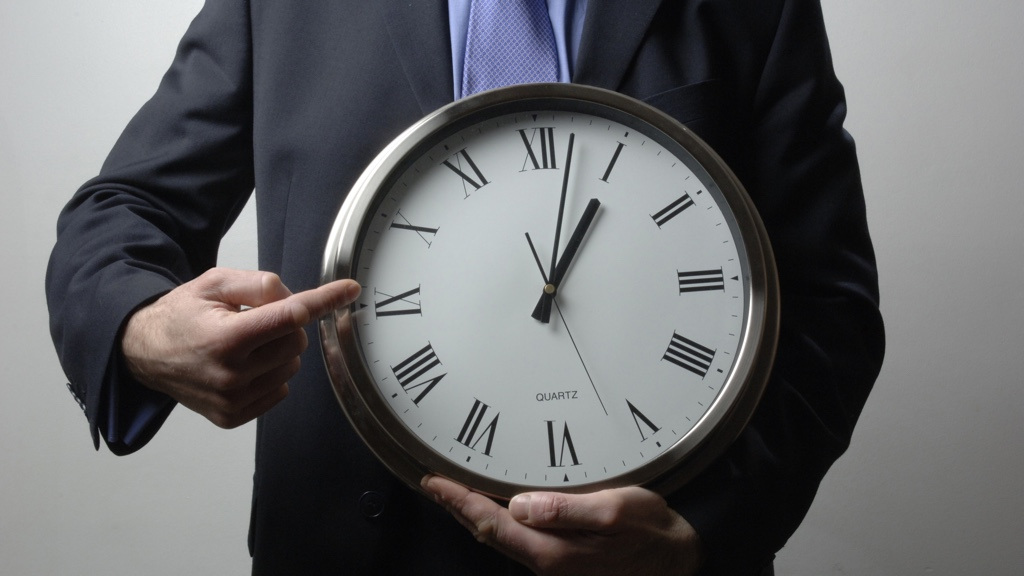Who wants to be the time-taking pedant?
Datum: 2017-04-03 15:33

When I speak to my clients about what ”steals” their time, ”inefficient meetings” is almost always at the top of the list. With the term inefficiency you can allude to many things, but one aspect of the term in this context refers to how certain meetings tend to take much longer than they were originally supposed to.
Every time we meet, the time set aside for the meeting is too short and we never make it to the final three items on the agenda. Either that, or it may look as if there will be enough time when we start the meeting, but some time during our gathering we float off-track for a long while and still do not finish on time, and then have to postpone a few points until next time. If we have time for them then, that is.
Take turns
We could use someone who keeps track of time so that we actually go through all the things we need to address today. But as the facilitator of the meeting we have to focus on making sure everyone gets to speak, follow the arguments made, and steer the discussion in an action-oriented direction. If we on top of that have to keep track of time, it can get slightly overwhelming, we might get distracted and not do as good a job as we otherwise would with moderating the meeting.
What if we appointed someone as the time-taker who is responsible for the meeting to run according to schedule and finally end on time? But who would volunteer to be the time-taking pedant?
It can definitely be perceived as a negative and unrewarding role. This is why it is such a good idea to take turns with keeping track of time if the meeting in need of such a function is a recurring one, which would make different people responsible every time.
Do and learn
Over time all participants will experience the perhaps not so great feeling of having to interrupt a colleague in the middle of an elaborate monologue, which will result in that we all get better at keeping it short and sticking to the time we have. If we do stick to the time at hand because we care ourselves, then we might do so out of consideration for the time-taker.
Do this
- Decide on what forum you feel would be appropriate for and in need of this method.
- Suggest the idea that you should have a time-keeper during every meeting to the person who usually is the facilitator of the meeting. A company from the south of Sweden I visited not long ago had appointed what they referred to as ”watchdogs” for certain meetings. You are probably not the only one who gets frustrated when the meeting takes longer than it should, so your colleagues will most likely be open to your idea.
- Before the meeting, set timeframes for the agenda. That is to say, decide that ”this item on the agenda may take 10 minutes to address, this may take 5 minutes and this one 20 minutes”. Doing this will give you something to lean back on during the meeting and help you keep the tempo going.
- Be the time-taker during the first meeting yourself.
- At the end of the meeting you ask the assembled colleagues: ”Who would like to be the take-time during the next meeting?”. Make note of whoever agrees to do it so that there will be no doubt as to who is responsible for the task next time you meet.
- Take a few minutes after the meeting to reflect and think of something you thought went well with time-taking and something you would like to do better next time it is your turn. Share what you conclude with whomever is the time-taker for the next meeting. This way you will continuously refine the task as a group and make it easier and even better as you go along.
Break the habit and remain focused
If you rotate the task of being responsible for the meeting being on track and time in your recurring meetings (such as team-gatherings, department-meetings, staff-meetings, management-group meetings, project-meetings or some other context you meet colleagues in), the meetings will eventually automatically be held within the set time-frame. Your meetings will be more efficient and focused, and rather than getting frustrated over some colleagues’ inability to keep track of themselves, you will to a greater extent experience the actual purpose and result of the meetings.
How did you solve the problem?
What have you done at your company to make sure the meetings stick to the set agenda and are held within the time-frame? This is a common problem, so feel free to help others by leaving a comment.




